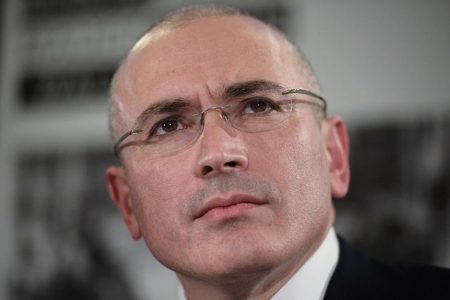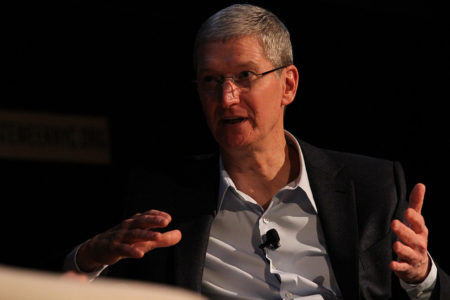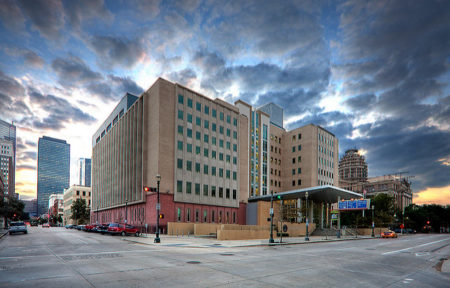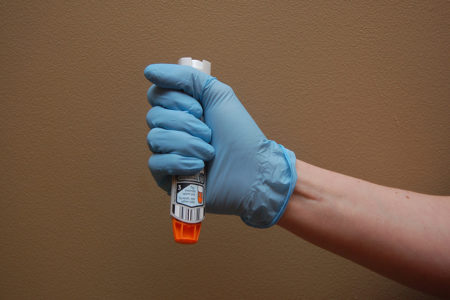By Peter Ward September 2, 2016
Companies Take Advantage of Global Corporate Super Court

Mikhail Khodorkovsky ©By Митя Алешковский (Mitya Aleshkovskiy), Wikimedia Commons, CC BY-SA 3.0
Ever heard of the global court that gives corporations the power to sue countries? Possibly not, which is what makes Buzzfeed’s long form investigation into the investor-state dispute settlement, or ISDS, all the more fascinating.
ISDS is supposed to be a method for foreign corporations to settle disputes with countries where they do business, so the companies rights aren’t affected and foreign investment into the country keeps flowing.
The ISDS arbitration system is written into the network of trade agreements that govern international trade and investment, including the North American Free Trade Agreement and the Trans-Pacific Partnership, and allows corporations to bring lawsuits against nations. A panel of three arbitrators rules over each case.
But these arbitrators are often times the same corporate lawyers who argue ISDS cases on behalf of the companies. Some of them will argue a case one day and judge one the next, according to the article. The business will appoint one arbitrator, the country another and they both will agree on the third.
Countries can be ordered to pay millions or even billions of dollars to corporations by the ISDS, and they have little room to appeal decisions. Many countries find it easier to just rewrite their laws to suit the companies.
ISDS can be used to stop blatant crimes by governments against corporations. For example, arbitrators told Russia to pay compensation after it found that Vladimir Putin’s administration had used tax and criminal proceedings to destroy political rival Mikhail Khodorkovsky’s oil company.
But increasingly, the system has been used for more dubious pursuits. “Over the last two decades, ISDS has morphed from a rarely used last resort, designed for egregious cases of state theft or blatant discrimination, into a powerful tool that corporations brandish ever more frequently, often against broad public policies that they claim crimp profits,” author Chris Hamby writes.
The article is the first part of a series examining the global super court.
Apple’s $14.5bn Tax Bill in Context

Apple CEO Tim Cook. ©The Climate Group
The European Union told Apple this week that it would have to pay $14.5 billion in back taxes, after ruling that Ireland had given the iPhone maker an illegal deal on its taxes. Business Insider ran a graphic on Tuesday explaining just what that figure means to Apple.
Apple has said it will contest the ruling and told shareholders it doesn’t expect the decision to have any short term effects on the company’s finances.
But $14.5 billion is a huge amount, even for a company the size of Apple. The figure is equal to 24.3 million iPhones, based on the average selling price, according to Business Insider’s graphic. It’s also almost twice as much as Apple’s profit from the last quarter, which was $7.8 billion.
The amount is over four times higher than Facebook’s profit from 2015, and is enough to buy every man, woman and child in Ireland five iPhones. Apple is the world’s most valuable company, and CEO Tim Cook believes that the decision is wrong, saying that the E.U. is attempting to change Ireland’s laws and charge Apple based on what it believes the law should have been.
“Ireland has said they plan to appeal the Commission’s ruling and Apple will do the same. We are confident that the Commission’s order will be reversed,” Cook wrote in a statement.
Poor Juvenile Offenders Trapped by Courts

Harris County juvenile justice court, Houston. ©telwink
Many low-income people struggle to pay the fines and fees imposed by the U.S. Court system, a subject that has been well reported over the past two years. But this week, The New York Times turned the spotlight on the problems encountered by juvenile offenders.
The article tells the story of Dequan Jackson, who was charged with battery after banging into a teacher in a school hallway at age 13 in Florida. He pled guilty with the promise that the charge would be reduced to a misdemeanor after one year of successful probation. He met all of the conditions – including adhering to a curfew, working 40 hours in a food bank and keeping out of trouble – except one.
Jackson’s family couldn’t afford to pay the $200 in court and public defender fees, and his probation was extended by 14 more months for that reason alone.“You feel like you’re drowning and you’re trying to get some air, but people are just pouring more water into the pool,” Jackson, now 16, told The Times.
A national survey published by the Juvenile Law Center, a legal aid and advocacy group, showed that fines, fees and restitution mandates are imposed on juvenile offenders in every state of America. This creates a two-tiered system of justice, where the greatest effects are felt by the poor and racial minorities, according to the report.
EpiPen Pressure Grows

Epipen autoinjector. ©Greg Friese
Pharmaceutical company Mylan has come under more pressure this week after 20 U.S. Senators sent an open letter criticizing the “exorbitantly expensive” price hikes on its EpiPen.
The EpiPen is a medical injector that is used to treat severe allergic reactions.
Last week it was reported that Mylan, which acquired the rights to the EpiPen in 2007, had implemented a series of gradual price increases that inflated prices from $56.64 when the rights were acquired, to $317.82 today. At the same time as the price hike, Heather Bresch, the CEO of Mylan, enjoyed a 671% pay increase to $18,931,068 annually.
“The EpiPen auto-injector delivers a life-saving dose of epinephrine to patients suffering from anaphylaxis. Anaphylactic shock can lead to serious injury or death if untreated; thus, making sure the EpiPen is readily available for use is a critical part of life for millions of Americans living with severe allergies,” the Democratic senators wrote in the eight-page letter addressed to Bresch.
Two years ago the company put an incentive plan in place that rewards executives if they meet aggressive profit targets.
The Week’s Top Headlines
Elon Musk Faces Cash Squeeze at Tesla, SolarCity – Charley Grant, The Wall Street Journal
Apple boss expects to repatriate billions to the US next year – Simon Bowers, The Guardian
IMF’s Lagarde says likely to cut growth outlook as trade wanes – David Lawder, Reuters
Australia Is the Latest Country to Sue Volkswagen – Reuters
Wimpy owner snaps up Gourmet Burger – BBC
US commercial flights take off for Cuba after more than half-century – Patrick Oppman, Rene Marsh, CNN
UK factories bounce back from Brexit shock – Katie Allen, The Guardian
Samsung shares fall over Galaxy Note fears – Rhiannon Williams, BBC
Hyperloop One’s legal battles just got even stranger – Elizabeth Dwoskin, The Washington Post
Japanese airline to replace 100 engines on its 787 Dreamliners – Sophia Yan, Yoko Wakatsuki, CNN Money
This entry was posted on Friday, September 2nd, 2016 at 5:55 pm. It is filed under Week in Review. You can follow any responses to this entry through the RSS 2.0 feed.
Comments are closed.
